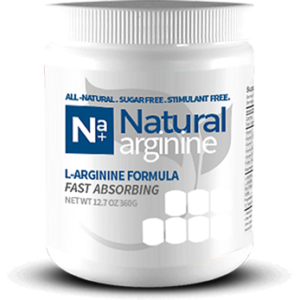What is arginine?
Arginine, commonly known as l-arginine, is a natural amino acid produced in the human body and found in a variety of diets. Arginine, which is derived from the amino acid glutamate, is a precursor for the synthesis of proteins. It has also been shown to enhance immunity, boost sexual health, prevent heart disease, increase exercise performance and promote good blood pressure management in people who consume extra arginine in supplement form. Arginine has also been found to be an indirect antioxidant, indicating that it may have benefits in a variety of areas of health and well-being.
Benefits of L-arginine
L-arginine is a natural chemical that has two functions: it becomes nitric oxide and helps the body construct protein.
L-arginine has a variety of potential health advantages, including heart health and chest discomfort to muscle development, healing, and male fertility.
Although there are several claims about L-Arginine’s advantages, not all of them have been supported by scientific research.
The following are some examples of L-arginine’s researched advantages and applications:
- growth hormone reserve test
- reducing high blood pressure
- correcting inborn errors of urea synthesis
- treating heart disease
- treating erectile dysfunction (ED)
- easing inflammation of the digestive tract in premature infants
- controlling blood sugar in people with diabetes
L-arginine may also be beneficial for a variety of other conditions. However, additional study is necessary to assess L-arginine’s potential to achieve the following:
- improve blood flow
- heal wounds faster
- alleviate anxiety
- treat burns
- improve kidney function for people with congestive heart failure
- enhance exercise performance
There are a few more topics that researchers are looking into when it comes to L-arginine and its effects on the human body.
Before using L-arginine as a supplement, it is important to discuss the benefits and risks with your doctor.
People should also investigate and understand the claims a manufacturer makes about their goods before using them.
Is arginine water-soluble or fat-soluble?
Arginine has a high water solubility, resulting in rapid uptake into the body with high bioavailability. Arginine is readily absorbed by tissues when ingested as a water-soluble substance. To begin seeing the complete advantages of arginine, you may need to take it on a daily basis for several days.
Where can arginine be found naturally? Common sources of arginine:
- Meat: Arginine is found in all types of meat.
- Dairy: Products derived from cow milk and other forms of animal milk are high in arginine.
- Vegan sources: Arginine can be found in numerous plant sources, including soybeans, pumpkin seeds, and peanuts. A vegan-friendly arginine Feel is used by the Arginine Feel.
What is the recommended daily value for arginine?
There is no nutrient reference value (NRV) for arginine since your body naturally generates it. However, in studies, daily doses of up to 1200mg of arginine have been found to be beneficial.
Can you absorb enough arginine from food?
Arginine is more common in meat and dairy products, but vegans may find it more difficult to consume enough of this amino acid through diet. However, some people do not make enough arginine. If they don’t get enough food, they can develop a deficit.
Why is arginine necessary for your body?
Arginine is needed to produce a wide range of essential proteins in your body. Some of these proteins regulate your immune system, while others aid with wound healing and blood flow regulation throughout your body. It appears that exogenous (supplemental) arginine may improve your body’s capacity to perform the same activities for which it relies on endogenous (body-produced) arginine, according to a large amount of both laboratory and clinical scientific research.
Functions of arginine
- Immune-boosting effects: According to animal studies, arginine appears to regulate the immune system.
- Potential sexual health advantages: Several clinical trials have suggested that arginine might aid in the treatment of erectile dysfunction by enhancing blood flow. Arginine has been found to improve sexual desire in women through a variety of clinical research and considerable evidence.
- Potential cardiovascular benefits: Arginine has been found in clinical studies to enhance blood flow and reduce blood pressure, suggesting that this amino acid may help prevent common cardiovascular diseases such as heart attack and stroke.
- Potential exercise performance benefits: Arginine has been shown to boost athletic performance by raising nitric oxide levels in the body, a chemical that improves muscle oxygenation.
- Potential recovery benefits: Arginine can help with infections and wound healing time after an accident or surgery, as well as when arginine levels in the body have been depleted due to disease.
- Potential metabolic benefits: Arginine has been found to improve insulin sensitivity and glucose metabolism in humans, suggesting that it may be beneficial in the management and treatment of diabetes.
When should you take arginine?
Taking arginine as a supplement may improve your body’s ability to resist infection. Arginine appears to operate on a wide variety of areas of the body and has been shown in studies to have such diverse effects that taking arginine as a daily supplement is a wise option for many reasons, including improving one’s health.
How long do you need to take arginine to start experiencing its benefits?
However, some people reported that taking L-arginine by mouth decreased their pain and some bladder inflammation symptoms after three months. Arginine is readily absorbed into the tissues when it’s a liquid. To begin seeing the full advantages of arginine, you may need to take it on a regular basis for several days.
How long does it take for your body to digest/absorb arginine?
Arginine should be fully absorbed in your body within 24 hours if you take it orally.
How long does arginine stay in your body after you take it?
Because arginine is used to construct proteins quickly, it does not stay as amino acid for long once consumed. The majority of pre-workout benefits last around two hours. This varies by component. The beneficial effects of arginine, for example, may wear off in 1–2 hours after consumption, but the energy boost provided by caffeine can take 6 hours or more to vanish. Your comments will assist us in improving our service.
Is arginine an antioxidant?
Arginine has been found to enhance the effects of other antioxidants in the body. l-l-Arginine promotes ARE defense. l-Arginine inhibits oxidative stress and activates the antioxidant response. The activity of l-arginine as an antioxidant is dependent on the amount of l-arginine available.











